Prepared by Dr R. NIRMALA, M.B.B.S., D.G.O.
Dedicated to all Women and Families
THYROID
THYROID is a small-scale Butterfly-shaped Endocrine gland located at the base junction of the neck just below the Adam’s apple.
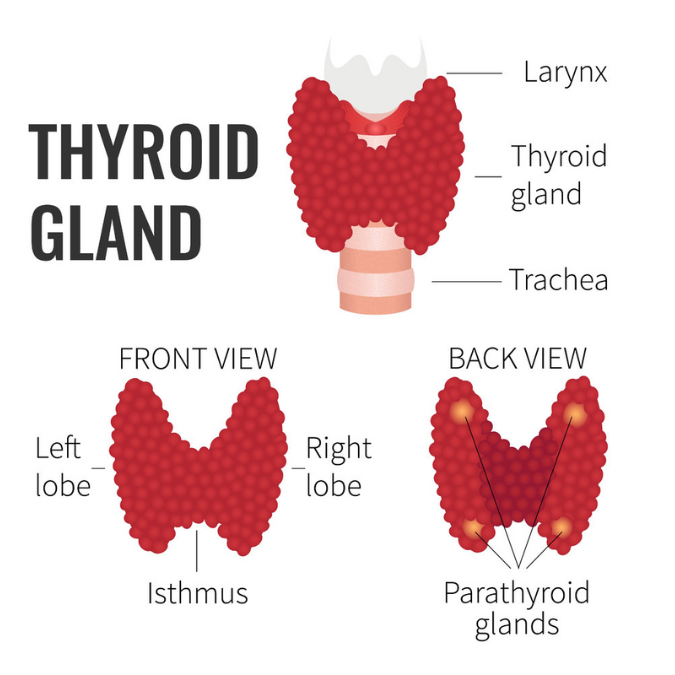 The thyroid gland makes two types of hormones, i.e., Thyroxine (T4) and Tri-Iodo Thyroxine (T3).
The thyroid gland makes two types of hormones, i.e., Thyroxine (T4) and Tri-Iodo Thyroxine (T3).
These cells affect every cell in the body and support using carbohydrates and fats.
THYROID DISEASES
Thyroid diseases are classified under
- Deficiency or Excess production of hormones (Viz) Hypothyroidism or Hyperthyroidism
- Thyroid Nodules.
- Peroxidase.
- Cancer.
 HYPOTHYROIDISM
HYPOTHYROIDISM
Hypothyroidism is the most important disease when the Thyroid does not produce enough hormones to meet the body’s functions and slows down the metabolism of carbohydrates and fats, leading to many diseases.
Likewise, excess secretions of hormones lead to many complications. Hypothyroidism primarily affects women older than 60; children under 12 years can also be affected with mild symptoms, and adolescent girls and pregnant women.
The following categories of people are affected by Hypothyroidism are
- If they have previous Thyroid problems like Goitre.
- Had undergone Thyroid surgery or had radioactive Iodine to correct Thyroid problems.
- Received radioactive treatment for Thyroid, neck and chest.
- Family history of Thyroid disease.
- Pregnant in the past six months.
- Have other concurrent health problems like B12 deficiency (Pernicious Anaemia), Type I and II Diabetes, Rheumatoid arthritis and chronic diseases.
SYMPTOMS OF HYPOTHYROIDISM (* More typical in Women)
Common Symptoms
Fatigue, Weight gain, Hair loss, Puffy face, Joint and Muscle pains, Heavy or irregular menstrual periods, Scanty Periods or Excessive Periods, Fertility problems in Women, Depression, Sudden enlargement of the gland that makes the neck swollen – Sometimes leading to difficulty in swallowing and breathing, Dry skin, Mood swings, Insomnia and Constipation.
Other Symptoms
- It can produce high Cholesterol, in rare cases leading to Myxoedema.
- During Pregnancy miscarriage, missed abortion, Premature baby and Intra Uterine Growth Retardation (IUGR).
Hypothyroidism is less common in men. Symptoms and treatment are the same.
INVESTIGATIONS
A Blood test to find out the hormone levels is the only accurate way to find the problem of Hypothyroidism – TSH (Thyroid Stimulating Hormone), Thyroxine (T4) in the Blood and T3 (Tri Iodo Thyroxine).
Other investigations above are suggested by the Physician or Doctor who will treat the Hypothyroid patient, i.e. Blood Sugar – Fasting, Post Prandial, HbA1C, and Lipid Profile.
TREATMENT
Treatment is given per the patient’s TSH levels, Clinical conditions and concurrent health problems.
Treatment includes adjusting the dose of Thyroxine according to age, Pregnancy and other health conditions.
Treatment includes diet, exercise and changing the lifestyle of the patients.
TSH TEST
The TSH is a hormone made in the PITUITARY GLAND, which tells the Thyroid how T4 and T3 to make.
A High TSH level most often means the patient has Hypothyroidism, which means the Thyroid gland is not making enough Thyroid hormones; as a result, the PITUITARY helps and releases TSH in the blood.
(The vice versa happens in Hyperthyroidism). If the TSH results are not normal, more tests are required. i.e.
T4 Tests
A high level of T4 means Hyperthyroidism, and low levels of T4 mean Hypothyroidism.
Sometimes low TSH may not be due to Thyroid problems, but if the patient is pregnant or using drugs like Corticosteroids for other illnesses like Asthma, Arthritis and some skin problems.
T3 Tests
In Hyperthyroidism, even though T4 is normal, the T3 test helps to confirm the diagnosis.
Therefore, doing both T4 and T3 may be required to verify Hyperthyroidism.
Thyroid Antibody Tests
Thyroid Antibody Tests helps in the diagnosis of autoimmune Thyroid disease like Grave’s Disease.
DIETS AND EXERCISES IN THYROID DISEASES
DIET
Diet plays a vital role in Thyroid problems. Iodine is important for making Thyroid hormones.
A Thyroid diet is essential to correct Hypothyroidism; the food increases thyroid swelling and is called Goitrogenic Food.
Avoid the following Soya Bean, Soya Milk, and Tofu.
Cruciferae Vegetables
Cruciferae Vegetables interfere with Iodine intake. Cabbage, Cauliflower, and Broccoli interfere with Iodine making Thyroid hormones.
 Gluten-Free Diet
Gluten-Free Diet
Use Whole Grain Wheat, Barley, and Rye.
 Fruits and Nuts
Fruits and Nuts
Avoid Pears, Plums, Cherries, Berries, Apricots, and Almonds.
Apple, juicy fruits such as Watermelons, Orange, and Papaya can be taken.
Use plenty of green vegetables, i.e., Leafy Vegetables.
Use Ginger in the diet daily 1-2 cm (Skin removed).
 Avoid Underground Tubers like Potato, Sweet Potato, Yam, and Colocasia.
Avoid Underground Tubers like Potato, Sweet Potato, Yam, and Colocasia.
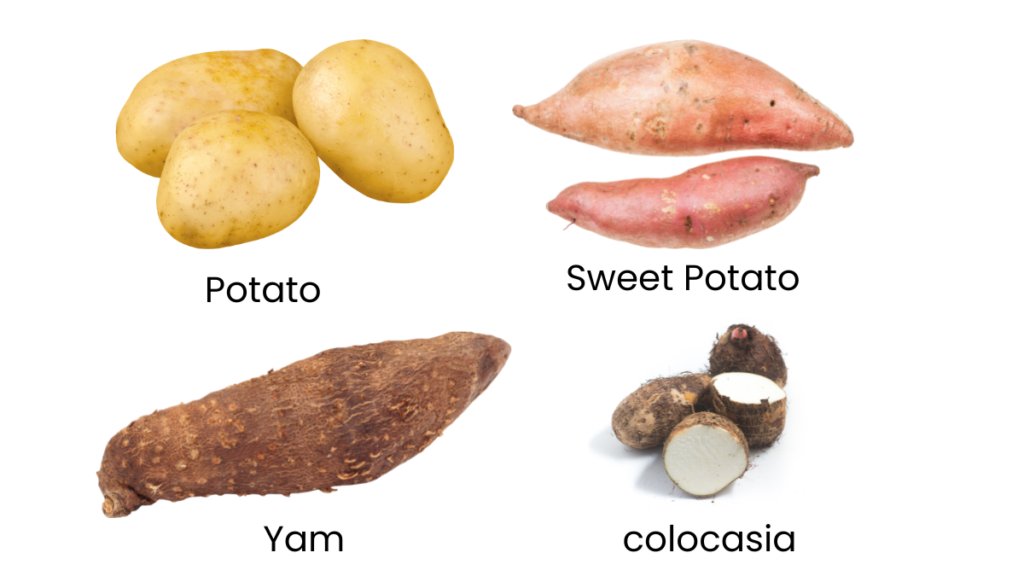 Pregnant Women should avoid the fruits and vegetables above-mentioned.
Pregnant Women should avoid the fruits and vegetables above-mentioned.
Milk
Among the diet, the most important staple food is Milk, which is suitable for easy intake, uptake and utilisation for all groups.
The best is “Cow’s milk”, which contains 3 % fat only. It also provides calcium, phosphate and trace elements.
If you are consuming pasteurised Milk with 2 5 or 3 % fat is equivalent to Cow’s Milk (Don’t use Buffaloes Milk or Milk containing 6 – 8 % fat).
Milk products like buttermilk are beneficial drinks. The moderate use of cheese and paneer can be used.
Cereals and Pulses
Cereals and Pulses play an important role in the Indian diet, viz,
Cereals: Wheat, Barley, Millets, Maize, Oats, Rice.
Pulses: Green gram, Black gram, Peas, Lentils, and Kidney beans provide proteins and minerals.
Rice and wheat are the most liked food products in India. Whole wheat, Hand pound rice, red rice or boiled rice are to be used.
Sugar
Avoid white sugar; use Brown sugar or Palm sugar.
Fats and Fatty acids
Fats and Fatty acids play an important role in our body, keeping the body warm- acts as a lubricant, and by giving energy.
Fatty acids are two types.
Solid fats and liquid fats
Saturated or unsaturated fatty acids
Unsaturated fat is a good fat, usually in a liquid state: E.g., Olive oil, Gingelly oil, Sunflower oil. Omega 3 fatty acid found in fish and egg – Omega 3 enhances immunity and controls atherosclerosis, high blood pressure, and Cardiac problems; Flax seed oil – is used in all foods.
Saturated fats are bad fat; they can be in a solid state or liquid state. Avoid coconut and coconut oil. Coconut oil can be applied to the skin to avoid drying instead of moisturiser.
Nuts
Nuts contain vitamins and minerals. E.g., Walnuts, Pistas, Dates and Figs. Peanuts can be used moderately. Avoid cashew nuts.
EXERCISES
Exercise is one of the essential activities that helps in many ways to reduce Hypothyroidism.
 Walking is the best for exercise, especially in older age groups. 1 – 2 hours of slow walking in the morning, i.e. 6 – 8 am, helps.
Walking is the best for exercise, especially in older age groups. 1 – 2 hours of slow walking in the morning, i.e. 6 – 8 am, helps.
Brisk walking for younger people for 30 minutes is beneficial. Treadmill walking moderately (As per your physician’s instructions) as they are helpful in weight loss in Hypothyroidism.
Yoga, Aerobics, and Meditation increase the metabolism and reduces mental stress.
Lifestyle modifications are significant. Avoid sedentary life – Physical activities are instrumental.
Above all, the old traditional household duties or ladies’ work (modified) by modern busy life and machines increase Hypothyroidism.
Sleep
The most important for a human being is peaceful sleep for at least 8 hours. Sleep gives mental rest and improves physical activity, and reduces stress. Thus, it enhances the manufacturing of thyroid hormone produced and reduces Hypothyroid.
TREATMENT
Use Thyroid drugs as suggested by your Physician or Doctor and do correct the metabolic disorders.
Drink 2 – 3 Litres of water per day.
Add Vitamins, i.e. Vitamin D3 – Spending in the Sunlight for 30 minutes in the morning, which helps in D – Absorption.
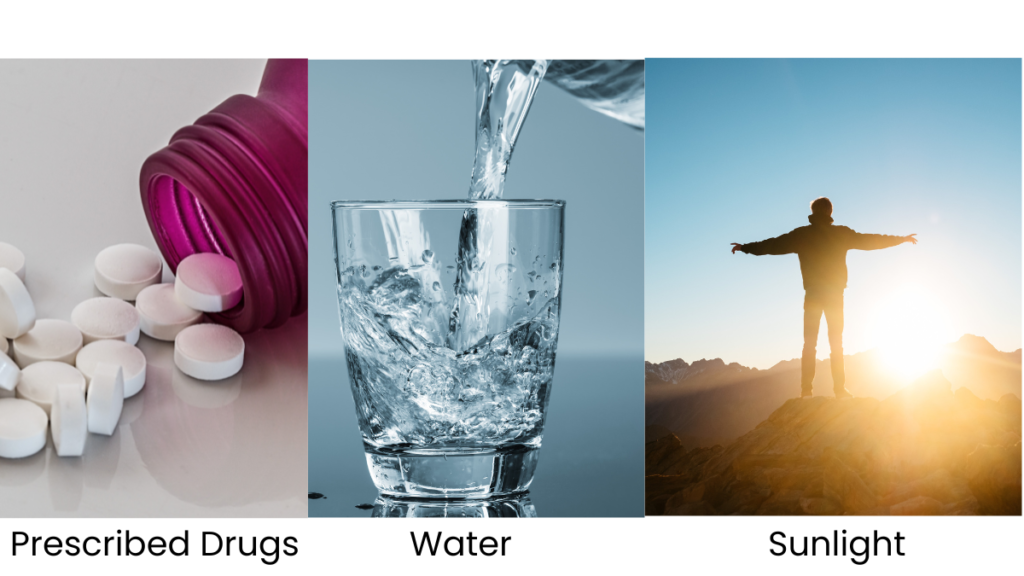 *Most Importantly
*Most Importantly
TAKE YOUR THYROID MEDICINES IN THE MORNING.
1 – 2 HOURS BEFORE TAKING ANY LIQUID DIET OR BREAKFAST.
APT TIME IS BETWEEN 5 TO 7 am
Other Articles by the Author
Folic Acid – A Chief Red Blood Cell Manufacturer in the Body
An exclusive talk by Dr K Hariharan on “The Thyroid Connection: Understanding and Managing Your Butterfly-Shaped Gland”.
Do follow our Instagram and Facebook for more updates.











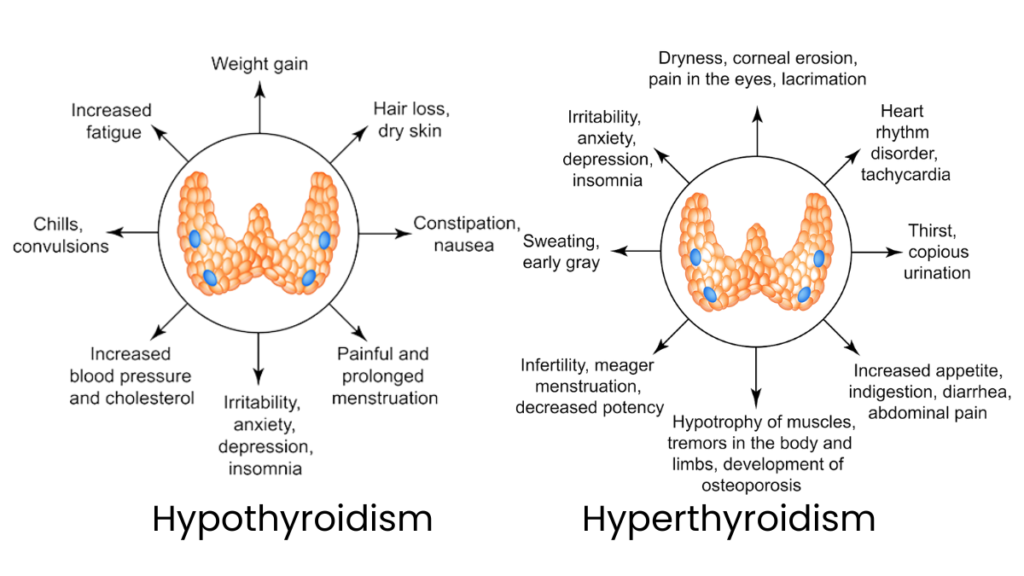 HYPOTHYROIDISM
HYPOTHYROIDISM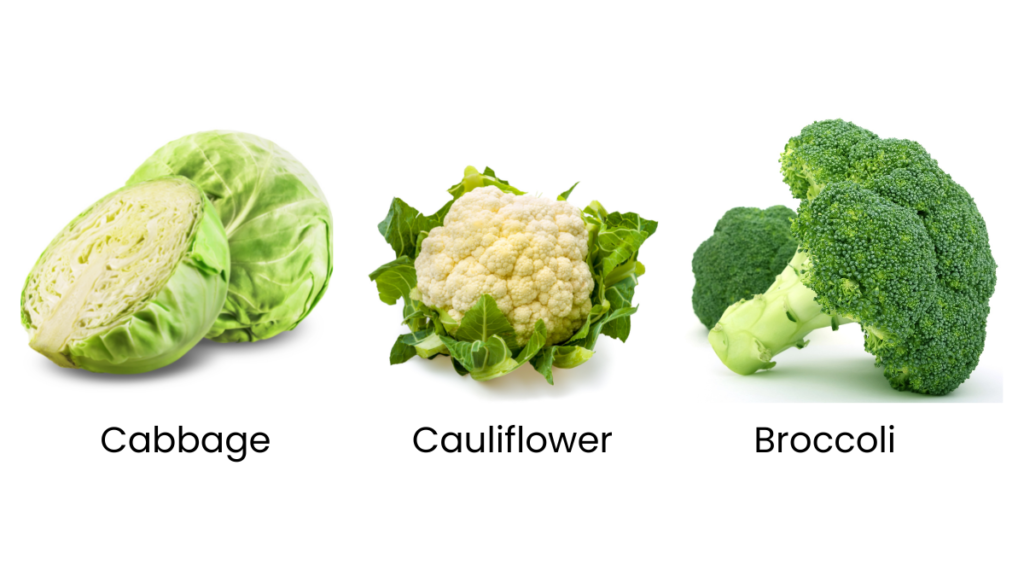 Gluten-Free Diet
Gluten-Free Diet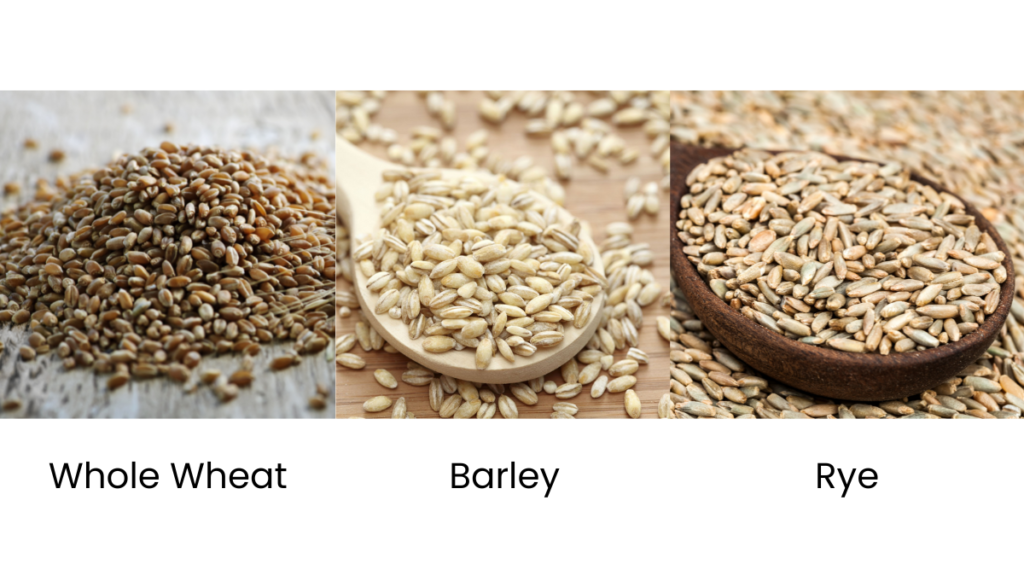 Fruits and Nuts
Fruits and Nuts





Very useful and detailed information about Thyroid gland and it’s importance!!!
This is will very useful to many youngsters..Thank you Doctor 🙏🏻🙏🏻🙏🏻
Thank you so much mam. Keep Supporting.
Excellent writeup .highly informative mam
Thank you so much mam. Keep Supporting.
Excellent writeup.Highly informative mam
Thank you so much mam. Keep Supporting.
Even a 10th standard student can understand…So simple and lucid. This is how medical explanation should be for the common man.
Thank you so much sir. Keep Supporting.
Excellent write up on Thyroid and how to lead a Thyroid free life, consuming things around us, easily available! Also it is written in such a way that a layman can understand it.
Thank you so much sir. Keep Supporting.